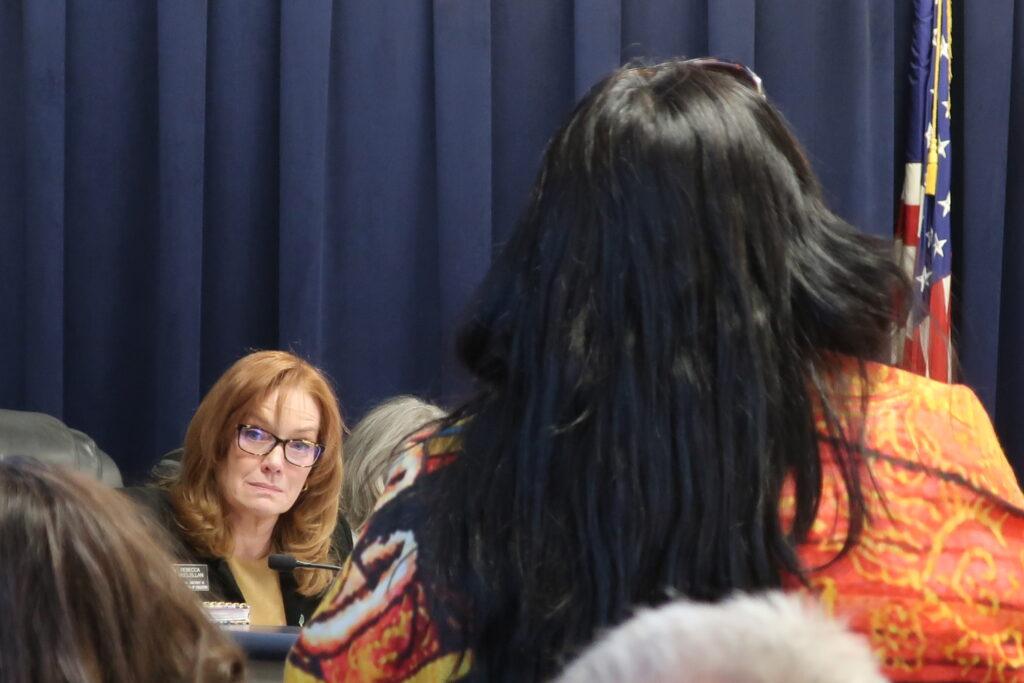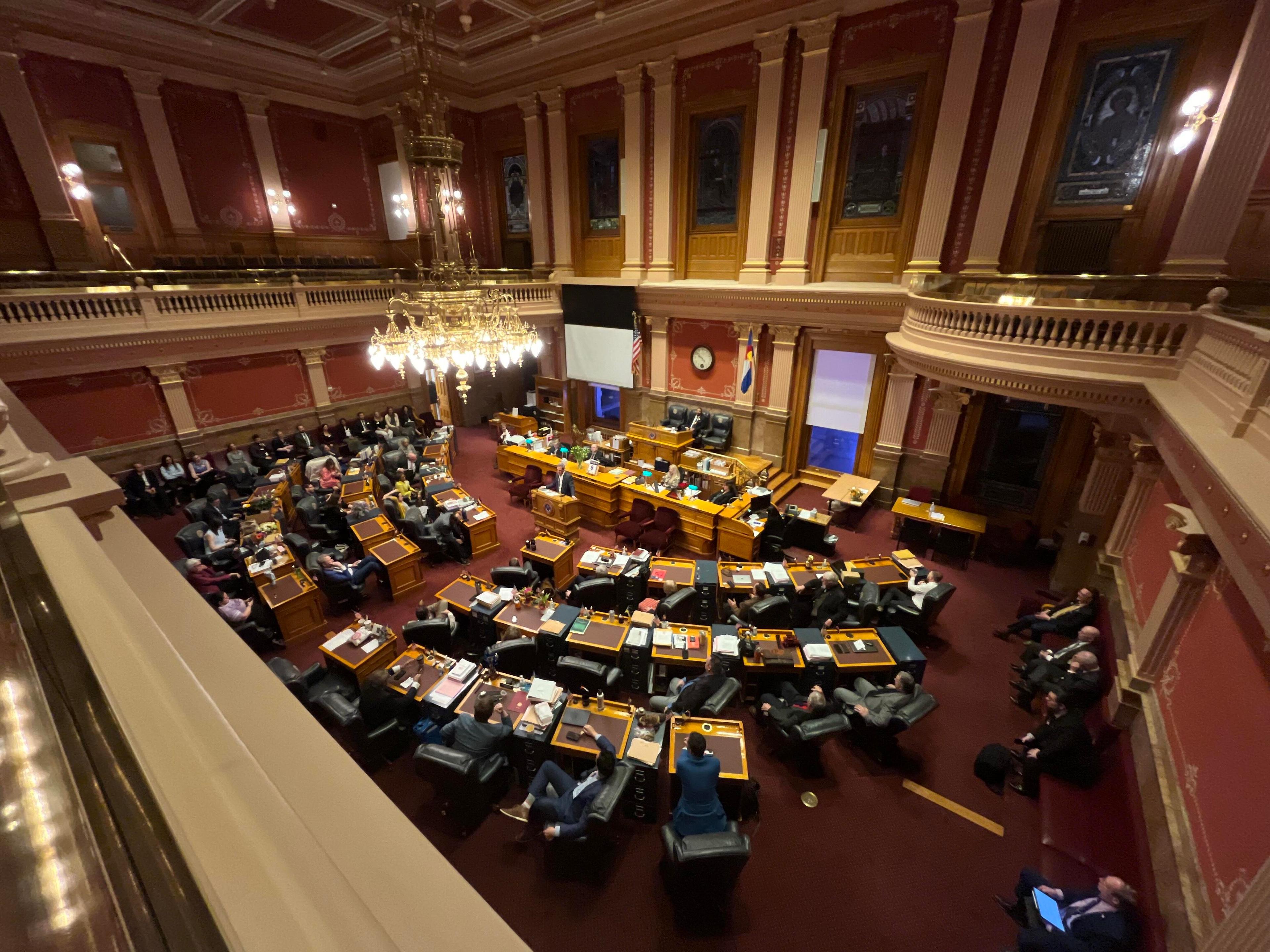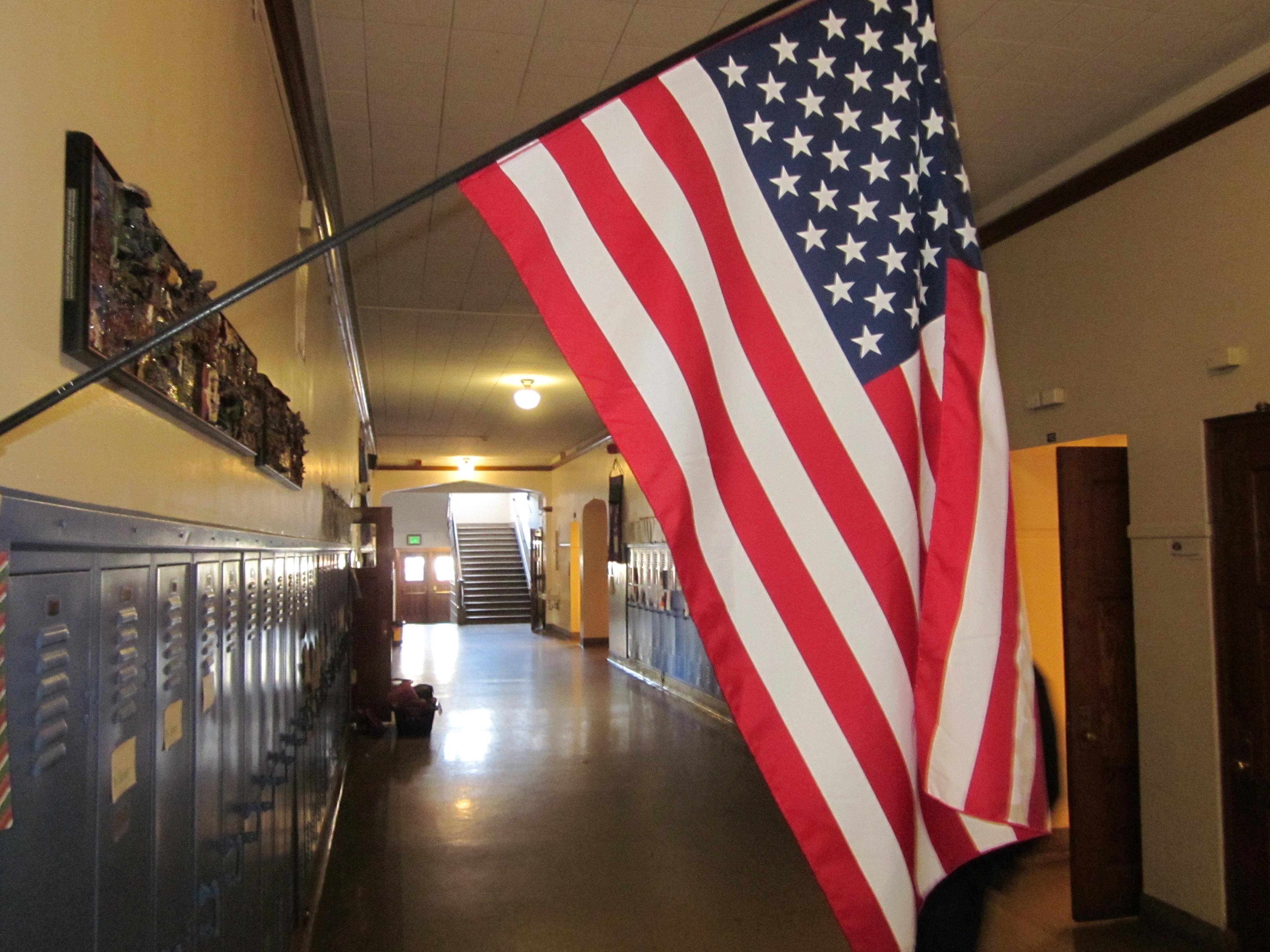
Determining what students learn in social studies is a messy affair these days.
Everyone has an opinion on what should be taught in history, civics and economics. And now, Colorado legislation explicitly calls for standards to be more inclusive of minorities and other marginalized groups in an era where Republicans in other states have restricted what’s taught.
Every six years, Colorado updates and revises its social studies standards. This year, a committee that proposed changes to the guidelines faced push-back from some in the public – and some on the board over the number of times various minority groups are referenced.
Colorado’s seven-member state school board is aiming to approve revisions to the social studies standards by the end of the year. After a presentation on the latest version of the revised guidelines Thursday, several board members said they are an improvement, while some say there’s not enough references to LGBTQ groups or to Asian Americans. Still others suggested the standards need to be radically slimmed down and promised more written suggestions.
“I've only gotten through four grades and I already have five single-spaced pages of amendments because there's such an issue with content,” said board member Debora Scheffel.
Also on Thursday, a group of Colorado lawmakers sent a letter to the board concerned about resistance to including the experiences of people of color and the LGBTQ community in history and civics standards. They stated that recommendations have faced “inappropriate political editorializing and concerning feedback from certain members of the Colorado State Board of Education.”
How did we get here?
A committee of teachers revised the standards to align to new Colorado legislation and public feedback. An analysis of the standards in 2021 and public feedback indicated the new social studies standards were too vague and more examples were needed to provide more clarity and context for teachers.
“So, the committee used the terminology from the laws to help guide these recommendations,” Jenny Pettit, a member of the committee and St. Vrain Valley Schools’s social studies coordinator, told the board.
Committee members drew upon the recommendations of the 1192 Commission, part of a 2019 law requiring teaching the history, culture and social contributions of a number of minority groups in civil government lessons. Other new laws include standards for Holocaust and genocide studies, personal financial literacy, and media literacy.
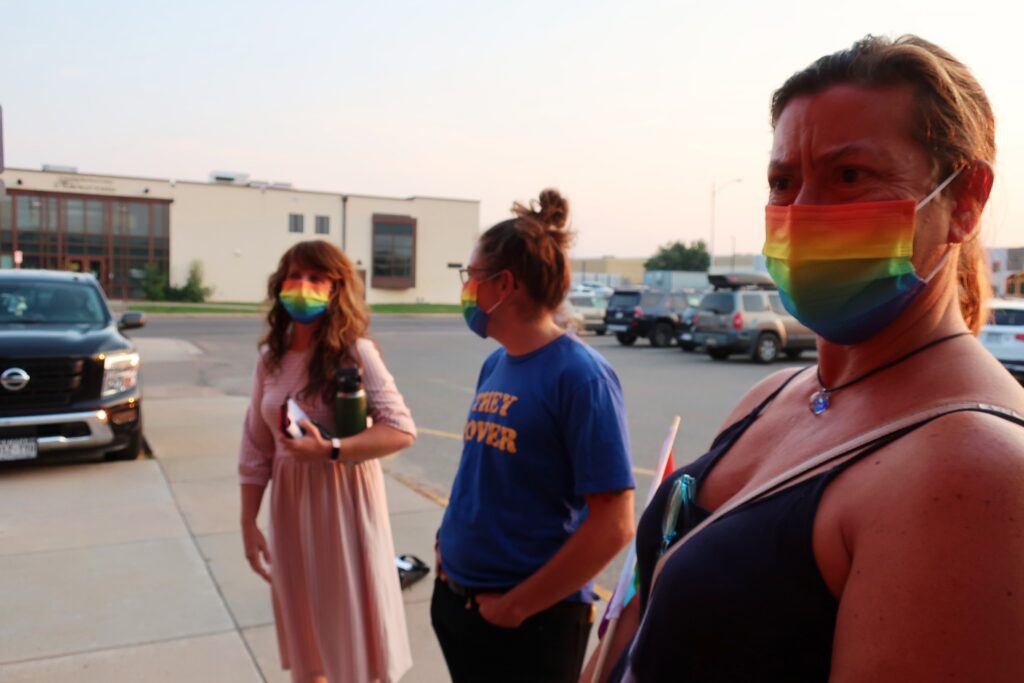
The list of minority groups in the 2019 law specifically includes American Indians, Latinos, African Americans, and Asian Americans, the lesbian, gay, bisexual, and transgender individuals within these minority groups, and the contributions and persecution of religious minorities.
Yet dozens of references to those groups were stripped in the latest revision, after some board members critiqued it. For example, one board member claimed discussing “LGBTQ” and “migration” in second-grade history standards could be considered as “indoctrination.”
The committee had already informed the board in April that it decided to cut references to LGBTQ issues for students below the fourth grade. About a third of the public feedback opposed more inclusive recommendations that were first issued in November, with two-thirds supportive.
Still, while some references to minority groups were stripped, the committee’s work represents the first time there are multiple, specific references to marginalized groups, despite legislation that goes back decades requiring some be taught.
“It is far greater than anything that existed before,” said Floyd Cobb, who directs teaching and learning at the Colorado Department of Education.
Some lawmakers however, say significantly decreasing the number of references to various groups in the proposed revision “boldly thwarts” the legislative intent and authority of HB19-1192. It points to several major “omissions” from what the 1192 Commission recommended, including the concept of race in preschool standards, and teaching about contributions of specific groups starting in first grade.
The letter to the board was signed by the Colorado Democratic Latino Caucus, the Black Democratic Legislative Caucus of Colorado, the Colorado Legislative LGBTQ Caucus, and the Democratic Women’s Caucus of Colorado.
In Colorado, the state sets academic standards, but local districts choose how to teach it.
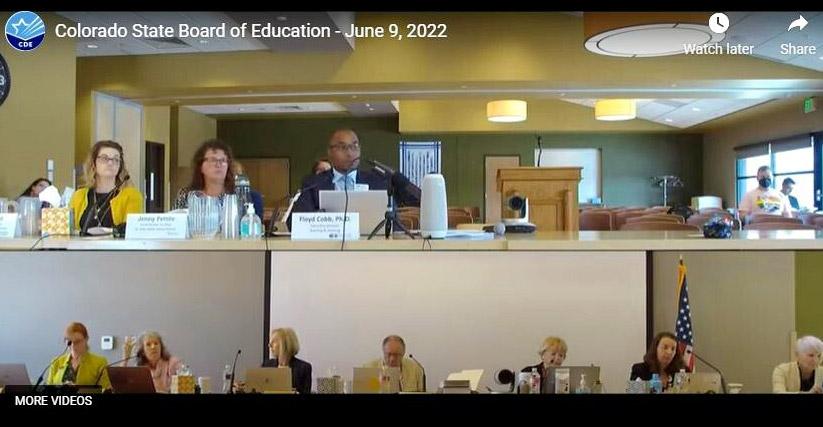
So now we’re in 2022. What has the social studies revision committee recommended?
Recommended changes to the standards in preschool through 12th grades have been released online, with red indicating additions and strike-throughs indicating deletions from the original recommendations in November.
For example, in the original version of the recommendations, the term African American was added 48 times. After the feedback, 29 references were deleted, while 19 were preserved. The acronym “LGBTQ” was removed 27 times with it appearing five times in the final version.
On Thursday, board member Lisa Escárcega was concerned there were no LGBTQ references at the middle school level.
“I believe we as a board have a shared value and that shared value is student safety and wellbeing… So if we have that, then compromise is possible. I don’t think we hit the compromise correctly.”
The committee wrote that sometimes it opted to enumerate the groups and “at other times opted to use more expansive terminology such as: various peoples and cultures; diverse groups, identities, and cultures; and multiple and diverse perspectives.”
In written comments prior to Thursday’s meeting, the most detailed critique came from board member Joyce Rankin. She complained about a reference to “gender identity” in a first-grade history standard and said a reference to “the LGBTQ culture is inappropriate at this (third) grade level.”
One of the sample questions a teacher could ask her students in fifth-grade history is: “Why is it important to understand and empathize with the perspectives of diverse groups?”
Rankin commented: “Is it? Or is this a teacher’s perspective?”
The committee responded: “Yes, it is important to understand the perspectives of others as that is a key element of having civil discourse in a democracy.”
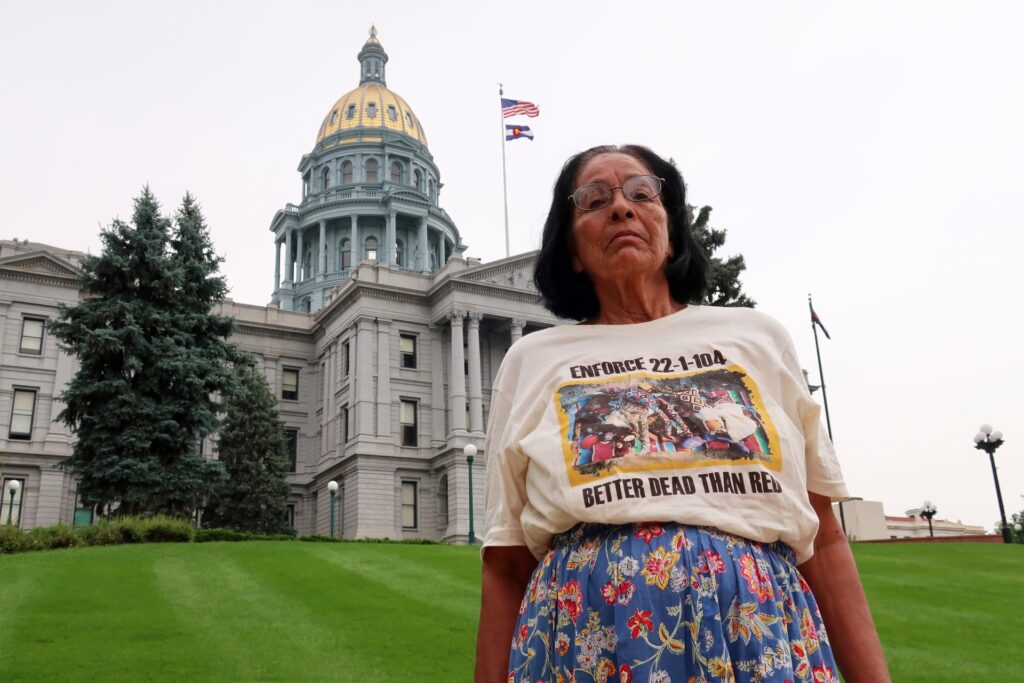
In a question about how “African American, Latino, Asian American, Indigenous Peoples, LGBTQ, and religious minority cultures are different from and similar to one another,” Rankin commented: “Is LGBTQ or LGBTQ+ a culture? If all social groups are considered a culture, please include 'Baby Boomers,' Millennials etc. and Senior Citizens along with all other social groups that exist.”
Colorado state law did not delineate that baby boomers, millennials and senior citizens should be reflected in the curriculum, but the committee revised the question to read instead, “How are cultures different from and similar to one another?”
Rankin wrote that she believes other ethnic groups were intentionally left out, including German Americans, Italian Americans, Canadian Americans, French Americans, Jewish Americans, Danish Americans, Norwegian Americans, Russian Americans and Indian Americans. (Those groups were not referenced in the 2019 law, which was attempting to ensure groups historically left out of American history books would be included.)
Rankin commented that the “continual and exhausting” attempts to include various historically marginalized groups is “a trite and ineffective attempt to be inclusive.” She explained that by trying to list every group, inevitably a group will be left out. The committee responded by eliminating the listing of historically marginalized groups in many cases, but included them in other specific sections of the standards.
She also accused the revision writers of “actively trying to diminish the value of citizenship and Patriotism in the United States of America.”
The committee didn’t accept all the board member’s suggestions. In sixth-grade civics, one “essential skill” is: Participate in social or community activities.
“This might be interpreted as activism on the part of the teacher requiring student participation. Parental involvement?” Rankin wrote.
The committee responded: “The envisioned activities are those such as trash clean-up or volunteering at a soup kitchen.”
In written comments, board member Steve Durham made several requests related to amplifying the positive contributions the U.S. has made to advancing human freedom and prosperity, the country’s contributions to the defeat of fascism and totalitarianism and the defense of democratic governments during the Cold War.
Noticeably absent in the social studies standards, however, is any reference to American actions abroad that were illegal or have resulted in thousands — some scholars say millions — of deaths, overthrowing democratically elected governments, election interference, assassination attempts on world leaders, military interventions, bombings or occupations, and supplying military weapons to death squads (or both sides in a war) in a number of countries in Africa, Asia and Latin America.

Bigger changes to the social studies curriculum?
Board member Debora Scheffel is concerned about a larger issue — which was not part of the revision committee’s mandate — her belief that the breadth, depth and structure of civics and history content falls short.
“It’s just, to me, far unnecessarily complex and just leaves avenues of confusion,” she said. Scheffel suggested a whole-scale change or streamlining in the content, rigor and clarity of the standards. Board member Durham agreed, stating that would make the standards easier for parents and teachers to digest. The standards are currently 136 pages for 10 grade levels.
“There are only so many hours in the day,” Durham said, adding that it would be nice to be able to focus on everything outlined in the standards but “we only have 40 percent of kids that can read at grade level. We have fewer than that, that can’t do mathematics at grade level. So, until (then), it doesn't do any good to provide all this stuff in a history lesson if the children can't read and understand what they're reading.”
The Thomas B. Fordham Institute, a conservative-learning nonprofit education policy think tank, last year gave Colorado a D for both civics and history standards, with low marks for content, rigor, clarity and organization of the standards which it said are “needlessly confusing and often redundant.” At the same time, it said Colorado’s standards could benefit from additional specific examples and beefed up content.
It was unclear whether the state officials would have the time and capacity to carry out a complete structural overhaul.
Board member Rebecca McClellan said she appreciates the temptation to boil down the standards but wants to make sure the standards complies with the new law, “that invites us to look at history and civic contributions and cultural contributions, not just through the narrow lens of one experience as if we are looking through a keyhole, but rather to look at the unobstructed full vista.”
Board chair Angelika Schroeder said she wants to do what is most beneficial for educators.
“We want our parents to understand what's in the standards and we want our educators to be able to develop curriculum around that. And I'm not sure what's the best solution.”
Board members are now expected to provide additional written recommendations for amendments to the revisions.
